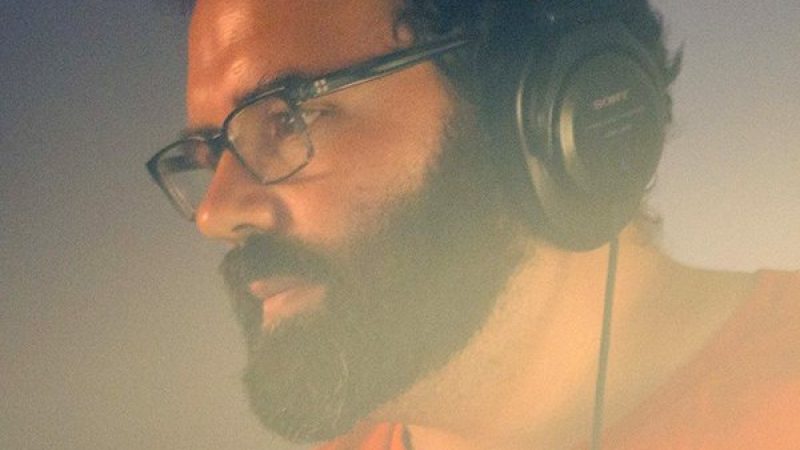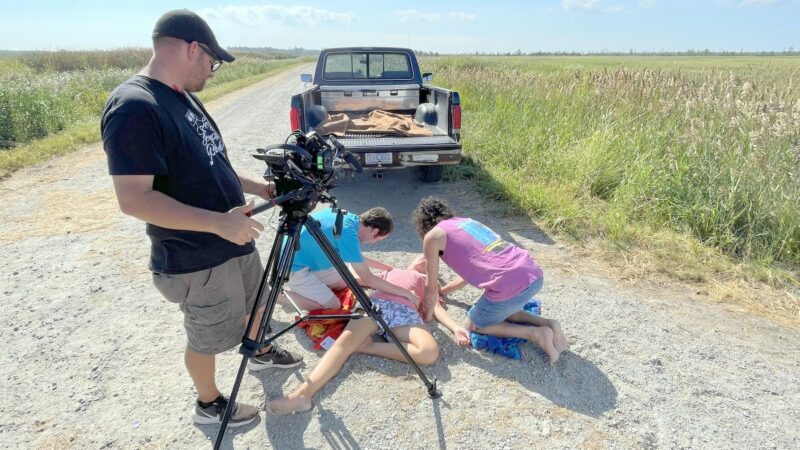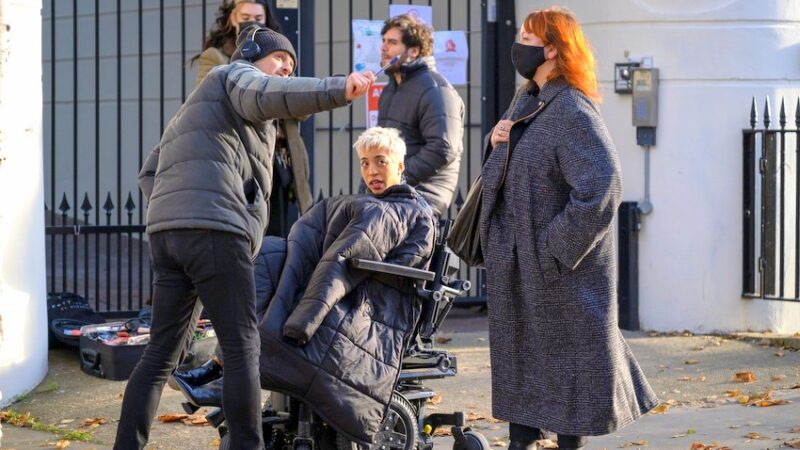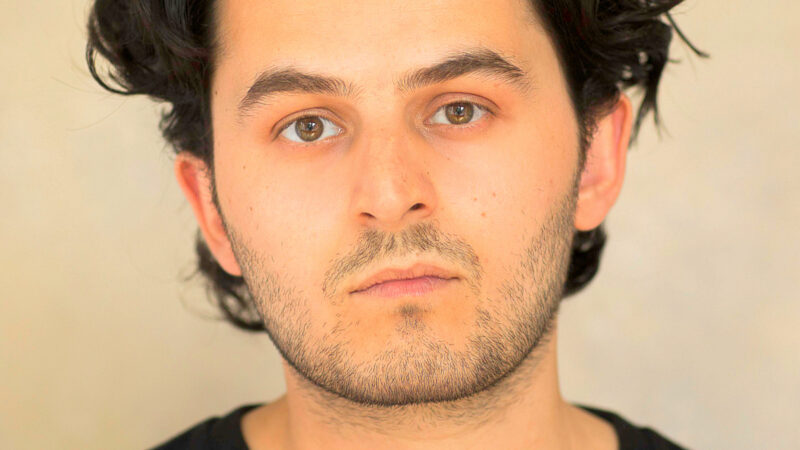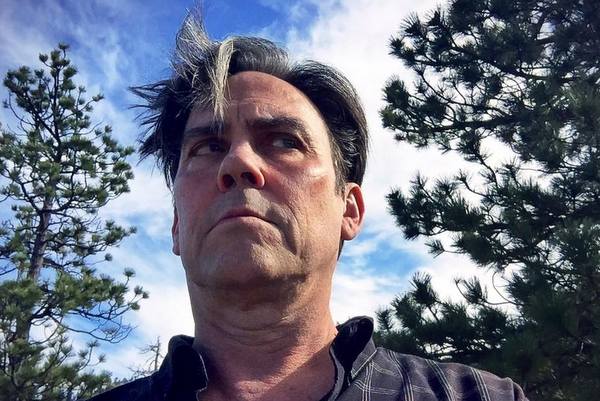
Charles Pinion is an Air Force brat who moved every three years for most of his life, including into adulthood. He was a painter and printmaker in College but expanded into fiction-writing and music, until all disciplines combined in his first movie TWISTED ISSUES (1988).
indieactivity: How would you describe your work?
Charles: I try not to describe my work too much. As with a painting, I’d prefer the viewer to come to their own conclusions. If I were to put my work into a genre, that genre would be “psychotronic” which encompasses horror, humor, science-fiction, exploitation, altered states and other elements that I like to include in my movies. If I were to describe my work generally, I would say colorful, kinetic, lyrical, hypnotic, confounding, annoying, and more.
My new short (9 min) TRY AGAIN is up! NSFW or kids! Share it if you like it!https://t.co/tslcZn3CtA
— Charles Pinion (@charlespinion) September 10, 2015
indieactivity: You’ve been doing this for a while, what has kept you going?
Charles: I think of my work as all of a piece, so I would say I started as a child, drawing. I played with GI Joes past an appropriate age, where I made very complex stories filled with underground worlds and epic global adventures. While a teen I shot Super-8, mostly of family gatherings, and later did some very crude animations and stop-motion. I videotaped bands in Gainesville, Florida, at a time when few people were doing so. This coalesced into my first feature TWISTED ISSUES, which comprised live bands and a plot involving a zombie skateboarder.
indieactivity: How do you choose you projects?
Charles: If it’s my own script or story idea, I just let it coalesce and find out if it sustains my interest enough to develop it. If it’s someone else’s script, I need to be able to “see” the movie it’s describing and I have to be interested in what I see. I don’t think I could just make a love story or a western or a war story, unless it had other elements that open up the story in a way that speaks to me.
indieactivity: Who has been you greatest collaborator?
Charles: I’d say my latest collaborator, Greg Salman, who co-wrote, produced and starred in AMERICAN MUMMY, has been my favorite so far.
indieactivity: What have you achieved in the horror, fantasy genre, that’s a landmark for future work?
Charles: I am proud of my small but enthusiastic fan-base, which encourages me in my future work.
indieactivity: What is your greatest work yet?
Charles: I’m no judge, but people enjoy my movies for different reasons. If by “greatest” you mean “fulfilling my objectives” I would say WE AWAIT (1996) is the most successful in terms of the outcome matching my vision.
indieactivity: Why would you choose an actor, writer or producer? What do you look for?
Charles: Enthusiasm is probably my first criterion, followed by talent and craft.
indieactivity: When offered a job, what do you put in place to do a good job?
Charles: I’ve rarely been offered a job. As an independent filmmaker I tend to make my jobs. But the things I put in place to deliver a good job are a singular vision and a good attitude. I’m fun and easy to work with, and I get things done.
indieactivity: Describe you latest work?
Charles: AMERICAN MUMMY is the story of a college dig-team that discovers a mummy in New Mexico in the desert. Whether it’s an ancient Aztec god or a long-dormant virus, the camp is eventually influenced/infected by something that turns one long night into a harrowing, bloody experience.
indieactivity: What thing helps you during a production?
Charles: A good team is essential to a production. Someone who gets to set early and makes coffee is golden in my book.
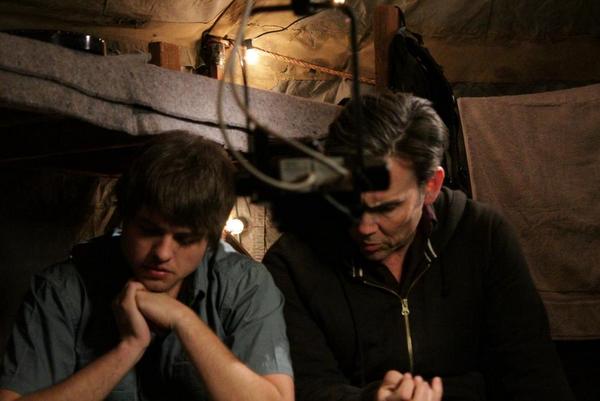
Charles Pinion AMERICAN MUMMY on set
indieactiivty: Explain a creative choice yo made on a recent production?
Charles: Movies are made through a constant series of creative choices. Even with a heavily-storyboarded production (as mine tend to be) one is constantly improvising, especially in low-budget work where things don’t always work out as planned and there are limited resources to re-do failed efforts. In my short TRY AGAIN (2015) certain realities on-set had us nimbly jumping from one solution to the next.
indieactivity: How can directors find projects?
Charles: That is an excellent question and I would like to know the answer as well! My short answer is: “Please send scripts!”
indieactivity: How can filmmakers finance their projects?
Charles: I’m not a good person to answer this question. I’ve always made movies for the cost of film/tape/hard-drive space. Anything above that is gravy. My answer here would be “Find a producer who is willing to find investors.”
indieactivity: What do you want from an actor in production?
Charles: I want them to know their lines, first and foremost. That way, even if their performance is sub-par I can still use it to advance the story. I want them to know “where they are” in the script, since usually you shoot out of sequence and they may be grieving in one scene, then ecstatically happy in another, yet in both cases might be sitting at a kitchen table in the same clothes.
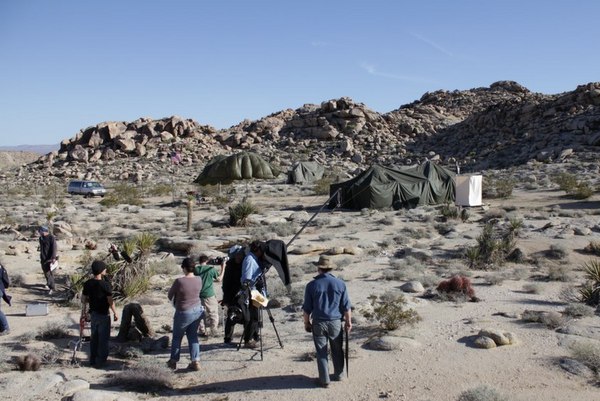
Charles Pinion AMERICAN MUMMY on set
indieactivity: How do you prefer to work with a producer during a production?
Charles: I like a producer to keep the day-to-day bullshit away from me as much as possible, so that I can make my vision happen in the camera. I like to be informed (but not overly so) of realities of time, light, and are we ahead or behind schedule?
indieactivity: Who is your favorite director?
Charles: Probably Roman Polanski.
indieactivity: Why?
Charles: His movie THE TENANT was an epiphany for me in terms of challenging my expectations of what a film can be and what a hero can be.
indieactivity: Briefly write about your career?
Charles: My career has comprised shooting and editing documentaries and narrative films. Each production is a learning experience. Making a film never gets any easier, either.
In Conversation with Michael Oblowitz Director of Confidential Informant
Confidential Informant stars Mel Gibson, Dominic Purcell, and Kate Bosworth

